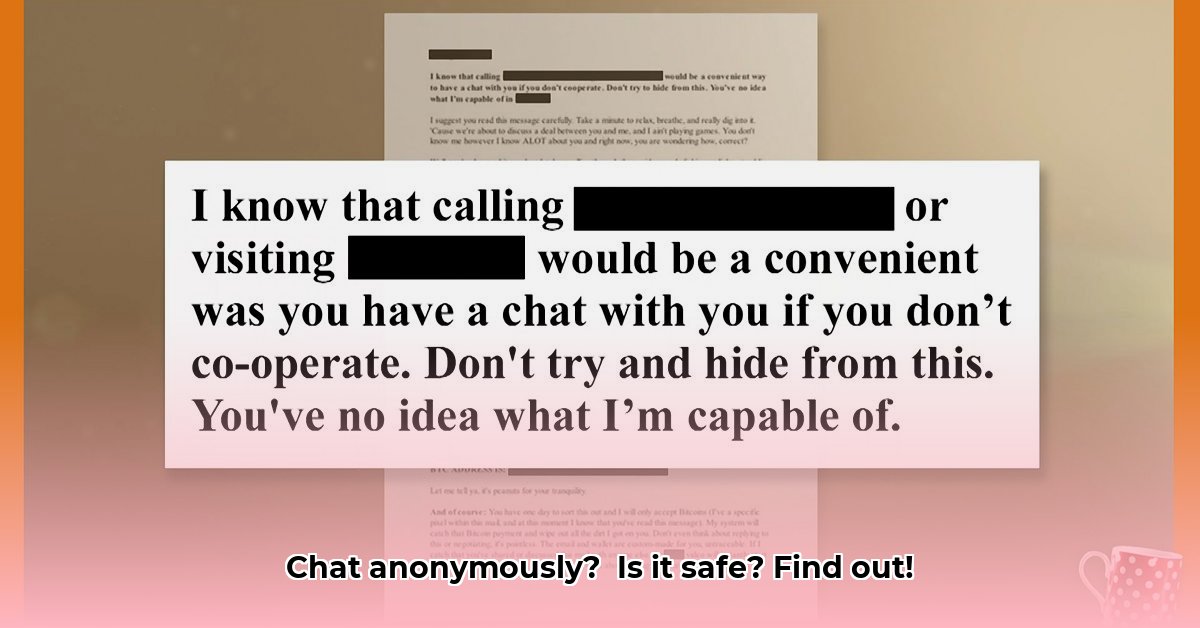
Online anonymity offers both freedom and peril. Platforms like Chatiwi, promising secure anonymous communication, highlight this duality. While offering benefits such as international connection and privacy, they simultaneously present significant security and legal risks that require careful consideration. For more on secure online practices, see this helpful resource on cryptocurrency exchange security. This report analyzes Chatiwi's features, security, and legal implications, offering a balanced perspective on its potential benefits and inherent dangers.
Chatiwi's Features and Functionality
Chatiwi offers several key features: end-to-end encryption (a method of securing communication where only the sender and receiver can access the message), anonymous registration, international reach, and group chat options. These features attract users seeking private and unrestricted communication. However, the lack of transparency surrounding the specific encryption methods used raises questions about the platform’s actual security.
Security Analysis: Scrutinizing Chatiwi's Claims
Chatiwi promotes end-to-end encryption, a crucial security feature. Yet, the platform lacks transparency regarding the specific encryption protocol employed. This lack of detail hinders independent verification and assessment of its strength. Without clear documentation and independent audits, the actual security of the platform remains uncertain. This opacity creates a risk for users who may believe their communications are more secure than they actually are. Is this a deliberate omission, or a reflection of weaker security measures?
Moderation and Content Control: A Critical Deficiency
The absence of a clearly defined moderation policy presents a significant risk. Anonymous communication platforms without effective moderation can become breeding grounds for illegal activities, harassment, and the spread of harmful content. The potential for misuse is amplified by the platform's features, creating a risky environment for all users. How can the platform ensure user safety without a robust internal system for monitoring content and dealing with infractions?
Legal and Ethical Implications: Navigating a Complex Landscape
Chatiwi's operations must comply with various data privacy regulations, including GDPR (General Data Protection Regulation) in Europe and the CCPA (California Consumer Privacy Act) in California. Non-compliance can lead to substantial legal liabilities. Furthermore, the platform's anonymous nature raises concerns regarding child safety and the potential for exploitation. The legal landscape surrounding anonymous online communication is complex and evolving, leaving Chatiwi in a position of significant legal risk.
Risk Assessment Matrix: Evaluating Potential Harms
The following matrix summarizes the key risks associated with Chatiwi's features:
| Feature | Risk Level | Mitigation Strategies |
|---|---|---|
| End-to-End Encryption | Moderate-High | Independent security audits; transparent disclosure of encryption protocol used. |
| Anonymous Registration | High | Enhanced user verification measures; improved content moderation systems. |
| Group Chat | Moderate-High | Increased monitoring; AI-powered detection of abusive content. |
| Lack of Age Verification | Very High | Strict age verification; collaboration with child safety organizations. |
Stakeholder Perspectives: Shared Responsibility
Mitigating the risks associated with Chatiwi necessitates a multi-faceted approach involving various stakeholders:
Chatiwi Developers: Must enhance security transparency, implement robust moderation systems, and actively cooperate with law enforcement to address illegal activities. Their commitment to user safety is paramount.
Users: Should exercise caution, report any inappropriate content, and be aware of the inherent risks of anonymous online communication. Educating users about responsible online behavior is critical.
Regulators: Need to establish clear legal frameworks, strengthen international cooperation on online safety, and provide support for victims of online abuse. Proactive regulation is essential.
Conclusion: Balancing Freedom and Safety
Chatiwi, like other anonymous communication platforms, presents a complex dilemma. It offers the potential for freedom of expression and connection but simultaneously creates an environment vulnerable to misuse. Responsible development, robust security measures, and effective content moderation are crucial to mitigate the risks. Users must remain vigilant and exercise caution. A collaborative effort among developers, users, and regulators is essential to ensure the safe and responsible use of anonymous communication platforms.